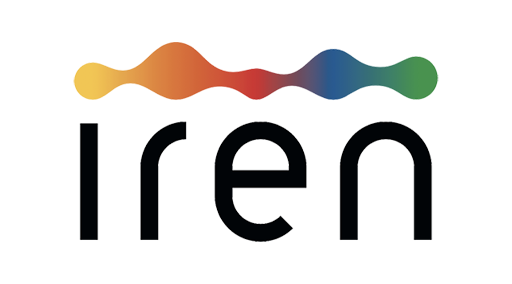A multidisciplinary group of research centers and private companies: the MARILIA Consortium’s expertise covers the full research and market development value chain of the project.
The Consortium comprehends 3 top-notch European research centers devoted to the technologicl development of the project: The AIT Austrian Institute of Technology GmbH (AUSTRIA) which will act as coordinator, the Ruđer Bošković Institute (CROATIA), and Faculty of Science at University of Zagreb (CROATIA).
IREN (ITALY), a multi-utility Company listed on the Italian Stock Exchange, will support the other project partners in defining the business model and the methodology for the validation of the final detection system.
Finally, Day One SRL (ITALY) will focus on the project dissemination and business-related activities.


IT Austrian Institute of Technology GmbH is Austria’s largest non-university R&D institution with over 1.300 employees, with the vision to bridge the gap between basic research and applied science. AIT participates through the competence unit Molecular Diagnostics of the Center for Health & Bioresources. The goal of our competence unit Molecular Diagnostics is to provide novel biomarkers, molecular assays, bioinformatics procedures, biosensors as well as fully integrated point-of-care devices for the whole range of personalized medicine. One leg of our research is to identify effective ways for early diagnosis of infections as well as diseases such as diabetes, cancer and fibrotic diseases. Another line of research is to identify biomarkers for patient stratification with the long-term goal to provide each patient with the optimal, personalized therapy. We develop DNA- and protein-based diagnostic assays and highly sensitive and specific biosensor systems for medical diagnostics, which can be integrated into portable devices.
Austria
AIT will be in charge of the overall project coordination, and thus will be the leader of WP1 (Project and innovation management). AIT will be mainly involved in WP2 (Assay development) and the validation of the new assay (WP4). AIT will also support the partners during the software development (WP3) and actively support D1 in WP5 (Economic Evaluation, Exploitation and Replication).

The Ruđer Bošković Institute (RBI) is by far the largest Croatian non-university scientific research centre of a multidisciplinary character with over 1000 employees, with the mission of excelling in scientific research in the natural, biomedical and engineering sciences, with contributions to higher education and cooperation with the business sector based on outstanding scientific research. The Institute participates in numerous internationally and nationally financed and internationally peer-reviewed scientific projects, such as those within the framework of the program Horizon 2020, programs of the IAEA, FP7, Croatian Science Foundation (HrZZ), NATO, NSF, ICGEB and projects of other foreign scientific foundations, currently engaged in over 200 projects, for which over half of the total funding comes from the European Union projects and other international sources.
Croatia
RBI (LBIS) will be responsible for the linking of DNA tags to proteins by developing in parallel the “click” based approach and as an alternative peptide-link based variant. In addition, LBIS will perform the characterisation of the obtained conjugates, and the study of their functional organisation in aqueous, biorelevant medium. For that purpose, LBIS possesses a fully equipped synthetic laboratory and the skilled personnel: most of the team members have at least 10 years of experience in organic synthesis of heterocycles and the “click” chemistry. The LBIS is very well positioned and equipped for the study of interactions: the laboratory has the necessary instruments: the well-established ITC and DSC methods, and the skilled and trained scientists with over 15 years of experience in UV/Vis/fluorescence/circular/linear dichroism spectrophotometry.

Day One is a startup Studio, whose mission is to transfer to the industrial world the most promising technologies developed by research centres, universities, and start-ups through a continuous interaction with industrial end-users.
Day One’s vision of the technology transfer process is quite original: rather than passively pushing the technology towards its intended market, the idea is to identify a range of possible applications for the technology, involving in the discussion relevant stakeholders, market experts, scientists, and even common people.
Day One is currently following around 100 new technologies, has accelerated 40 start-ups raising more than 50M€ of public and investor funding, and has a staff of 15 people, including experienced project managers, as well as technology and market specialists.
Italy
Day One will have a key role in ensuring that the product design choices are taken prioritising the satisfaction of the customers’ requirements, verifying that the business case exists for the product. At the same time, Day One will pave the way to the post-project industrialisation phase, orchestrating the partners’ IP and coordinating the creation of the start-up company which will take care of product engineering and commercialisation.

IREN, a multi-utility Company listed on the Italian Stock Exchange, operates in the sectors of electricity (production, distribution and sale), thermal energy for district heating (production and sale), gas (regasification, distribution and sale), the management of integrated water services, environmental services (collection and disposal of waste) and energy services.
The Group serves a multiregional catchment area, has more than 8,000 employees, a portfolio of around 1.7 million customers in the energy sector and about 2.8 million inhabitants served in the integrated water and 3 million in the waste cycles.
IREN is the first operator in Italy in the district heating sector for the volume heated, third in the water services sector for the number of cubic meters managed and in the environmental services sector for the quantity of waste treated, fifth in the gas sector for the amount of gas sold to end customers and fifth in the electricity sector for the amount of electricity sold.
IREN, with a network of more than 23,000 km of aqueduct, of 11,100 km of sewerage networks and 1,323 depuration systems manages the integrated water cycle for more than 2,800,000 persons. IREN takes care also of the planning, maintenance, strengthening, the measurement and the development of water / sewerage networks.
Italy
IREN (together with its business company IREN Laboratori, involved in the project activities as third party), will work on the following work packages of MARILIA project:
• WP1: mapping the specific user needs for upgrading the water analysis tests, and the use cases definition for the product that will be developed within the project;
• WP2: contributing to development of the sample processing protocol, with other project partners;
• WP4: supporting the other project partners in defining the methodology for the validation of the final detection system, and evaluating the outcomes of the validation process;
• WP5: contributing to the business case and business model validation by providing the experience of industrial player operating in the water sector.

Faculty of Science at University of Zagreb (UZ) provides scientific research and teaching study programs in all fields of natural science. Department of Chemistry, as a part of the Faculty of Science, offers scientific research and teaching study programs in chemistry. The Department develops and carries out scientific-research programs, which are integrated in the educational process. Scientific and research work of the Department contributes to the development of chemical science as well as to the advancement of natural sciences and technology in the Republic of Croatia. Department of Chemistry is recognized as a leading institution marked by excellence both in scientific work and in education. Molecular Modelling group at the Division of Physical Chemistry of the Department of Chemistry is focused on computational simulations of biologically important systems, mainly biomacromolecules such as proteins and nucleic acids.
Croatia
University of Zagreb will be responsible for the computational research in support of the project, as well as for the interpretation of computational results based on the experimental data. Furthermore, building on the computational studies’ results, novel experiments will be planned, designed and proposed to the project collaborators thus creating and defining the directions towards the final project goal. The computational research will consist of in silico construction of the systems of interest, their adequate parametrisation, molecular dynamics simulations, generation of in silico mutants, QM/MM calculations.

